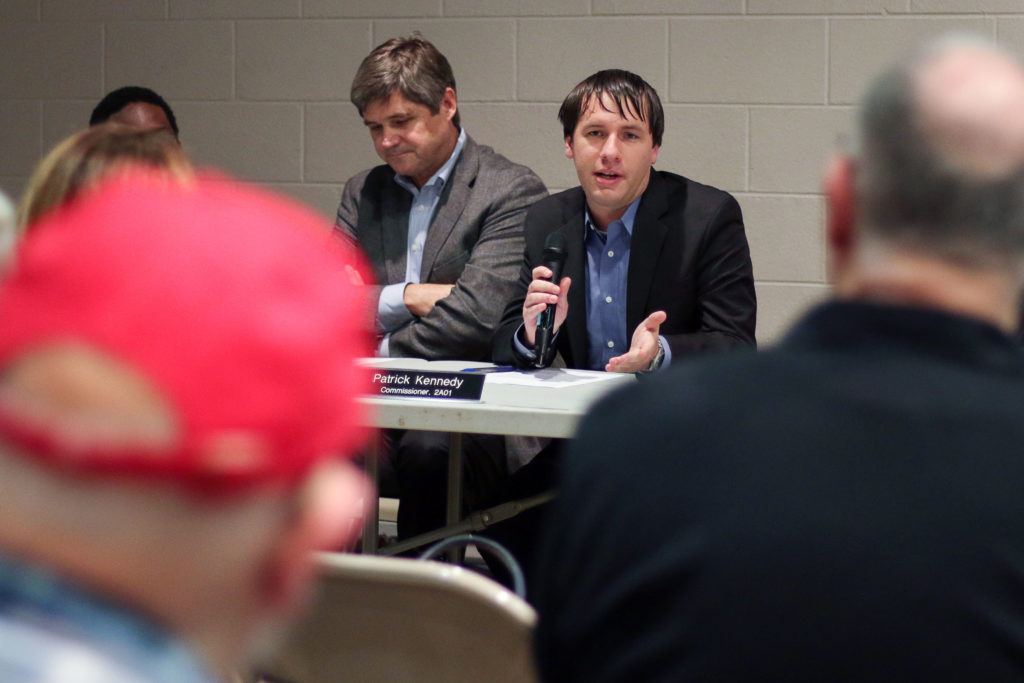Foggy Bottom residents voiced opposition to a controversial city bill that would expedite construction on a new wing at the GW Hospital at an emergency meeting Friday night.
About 30 residents attended a Foggy Bottom and West End Advisory Neighborhood Commission meeting at the School Without Walls to discuss the potential impact of the East End Health Equity Act, which would allow the hospital to quickly build a tower with space for 270 new beds. The ANC opposed the legislation because commissioners said the hospital was trying to circumvent the certificate of need process mandated for facility expansion.
ANC Chairman William Kennedy Smith said he was troubled by what he said was the secrecy surrounding the inclusion provision to add the beds, which was “buried in the bill.”
“We have virtually zero information about the nature of the contract,” Smith said. “To have it developed largely in secret, to have the first word of it be through a bill that is designed to circumvent the certificate process and to have the timeline moving the way it’s moving – all of those things are unprecedented and very troubling.”
Smith said Jack Evans, a D.C. Council member who represents Ward 2, had been unaware of the Foggy Bottom provision when he initially signed onto the bill. He added that Evans decided to oppose the bill after discovering the provision, which Evans’ representative who attended the meeting confirmed.
Residents said they were concerned that the presence of new construction and facilities would increase ambulance traffic, trash and pests and disrupt pedestrians in Foggy Bottom. A pamphlet distributed at the meeting by the commissioners stated that huge expansions, like the tower, would “adversely” affect residents’ and students’ quality of life.
Smith said he met with Kimberly Russo, the CEO of GW Hospital, in October, but she did not answer the commissioners’ questions and has not yet answered a questionnaire he sent to her the day following their meeting. He said the University’s official statement “has been that they do not have a position.”
Residents raised concerns that adding beds at the hospital would worsen the health care situation in the East End because the addition would divert demand away from Howard University Hospital, the traditional provider of primary care in the area.
“The institution that will be most adversely affected if they build those beds here will be Howard because all of their referral beds will be captured by this hospital,” Smith said. “The dean of the medical school there testified that it will put them out of business in six years. So, if you lose Howard, you lose the primary trainer of health care providers of color in the city.”
ANC commissioner Patrick Kennedy said the bill would leave GW with an “inflation-causing building in Foggy Bottom” in the long term.
“This is going to come back to bite the city in the future,” Kennedy said. “It might help some politicians now, but five or 10 years down the road or whenever they have a gap in the agreement, we will be back in the same place, and we will be worse off.”
The D.C. Council’s Health Committee will vote on the bill Nov. 13. If the committee approves the bill, it must then pass through the Council and receive signatures from Mayor Muriel Bowser and Congress.





